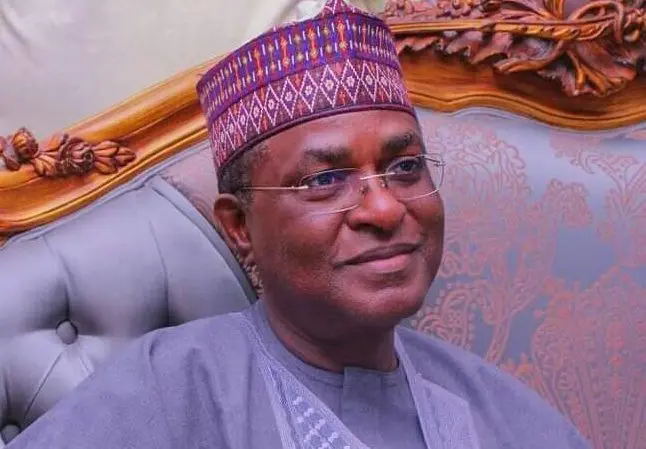Barely a week after the celebration of the one year in office of the Bola Ahmed Tinubu administration, chieftains of the party held a summit in Abuja on Tuesday to appraise the scorecard of the administration.
Speaking at the event tagged The Asiwaju Scorecard, organised by the All Progressives Congress Professionals Forum, former Bauchi State Governor and Chairman, Board of Trustees of the Forum, Mallam Isa Yuguda, absolved the present administration of the precarious state of the economy and other sectors.
The former Aviation Minister submitted that President Tinubu has taken bold initiatives to address economic challenges and stimulate growth. Yuguda, who claimed that Tinubu inherited an economy already made weary by the global pandemic, identified the sudden removal of fuel subsidy as one of the bold steps taken by the present administration.
He said that the president did not create any of the problems people are talking about, whether in the economy or in other sectors. In fact, what he met on the ground would have created a worse situation if not properly handled, but he is championing reforms that are required to pave the way for a better society.
“We all recall how, on assuming office, President Tinubu announced the removal of fuel subsidy but again, for the avoidance of doubt, he did not remove subsidy on PMS. It was not in the later part of the 2023 budget, but surprisingly, the Tinubu administration has had to bear the brunt of subsidy removal.
“Let me quickly add that my opposition to fuel subsidy has been well documented since the Goodluck Jonathan years, when, as chairman of a subcommittee on the economic meltdown, we recommended its removal after discovering the scam being perpetrated in the name of fuel subsidy. A recent study also showed that in spite of the COVID-19 lockdown of 2020, Nigeria still paid billions of naira for fuel subsidy even though, in reality, domestic fuel consumption was very low.
‘Indeed, the President has today been proved right with the manner in which petrol importation has gone down by 50% since June 2023, and it is almost certain to go down more in a few months when the 650,000 barrels per day Dangote Refinery begins to produce PMS locally, as well as the impending resumption of production at the Port Harcourt and Warri Refineries.
The former Aviation Minister maintained that amidst the criticism trailing the fuel subsidy removal, the decision has unlocked volume of public funds now available for state governors to cushion the effect of the subsidy removal.
“If any Nigerian is still in doubt about how payment of subsidy has over the years strained the country’s resources, they must have seen how the sub nationals now receive more than double what they used to get from Federation Account Allocation Committee (FAAC).
“At the last FAAC meeting, the total distributable revenue for April 2024 was N1.2 trillion, the highest ever disbursement in history. This time last year, in the subsidy era, what was shared was N655.8bn. So the subnationals, especially, are receiving double their previous allocations and therefore have more funds for critical infrastructure and should be doing more to provide succour to the people.
“The reform-minded Tinubu administration also unified the exchange rates, which inevitably sent those benefiting from arbitrage out of business. And of course, it did not take long before Nigeria began to reap the benefits, as the economy grew by 3.46% in the fourth quarter of 2023 compared with 2.54% in the preceding quarter. Also, Capital importation was up by 66% in Q4 of 2023 compared to a 33% decline in the previous quarter.”
In his presentation, the National Chairman of the APC, Abdullahi Umar Ganduje, enumerated measures by the present administration to deliver on food production and social infrastructure.
“Ladies and gentlemen, without going into the details of the theme, let me say that our economy is now gradually being transformed into a credit-based consumer economy that will improve agriculture, with emphasis on dry season farming, which will positively impact food security, food price, and delivery of enabling infrastructure and access to education, among others.
“Now that the economy is shifting towards renewable and sustainable energy sources, the use of cheap and clean compressed natural gas (CNG) has now become a reality under President Bola Ahmed Tinubu’s administration.
“On infrastructure, Mr. President has approved the construction, completion, and rehabilitation of several road projects across the country, to include the Kano-AAbuja Road, the Kano-EEastern Bypass Road Project, the 700 km Lagos-CCalabar Coastal Road, the 1000 km Badagry-SSokoto Road, and the 3500 units of renewed Hope Housing Cities and Estates now being built in 13 states of the country, for starters.
“In the next few days, the Students Loan Fund will become operational, and Nigerian youth will now have easier access to higher education by applying for funds from the scheme.
“On power, I have observed the increased transmission capacity of the country that now peaks at 14000 megawatts.”
ALSO READ THESE TOP STORIES FROM NIGERIAN TRIBUNE
